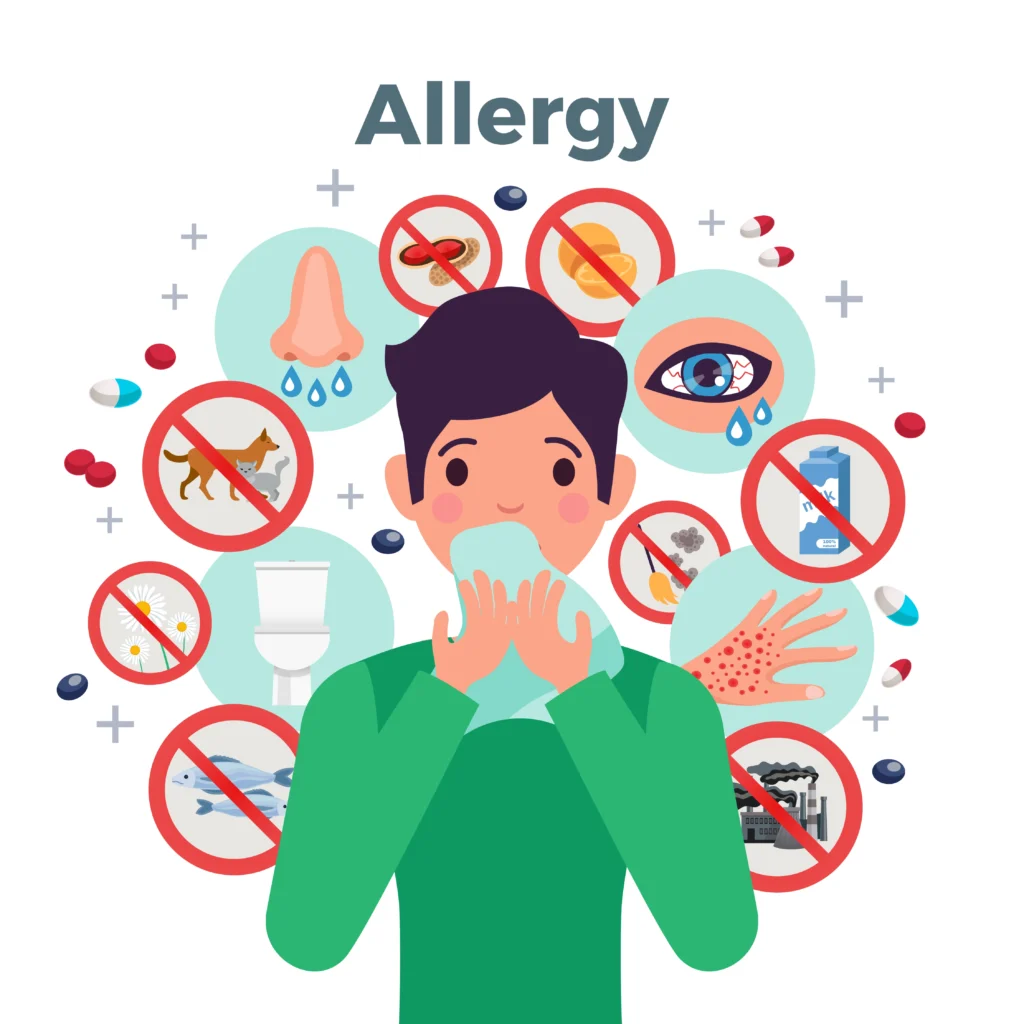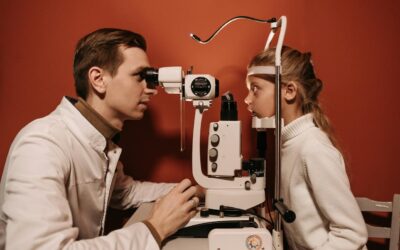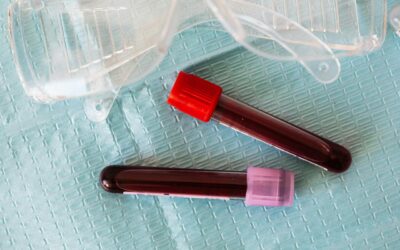If you have allergies, spring can be a tough time. Pollen from grass, weeds, and trees is very high this time of year, which can cause allergic rhinitis, also called hay fever.
Some annoying signs of these allergies are watery eyes, sneezing, a stuffy nose, and an itchy throat. Some people with allergies also have asthma, a disease that makes it hard to breathe.
The allergists who are part of Tilaknagar Speciality Clinic want to help you take care of your allergies this spring. Read the group’s five most important tips to stay safe around allergens and ease allergy symptoms.

Table of Contents
What do allergies mean?
When your body reacts to a foreign protein, you get an allergy. Allergens are proteins that are usually not harmful. People who are allergic to a certain protein, on the other hand, have an immune system that overreacts to its presence in the body.
What does an allergic reaction mean?
Your body’s reaction to an allergen is called an allergic reaction.
When you are allergic to something, your body makes immunoglobulin E (IgE) the first time you come into contact with that allergen. Antibodies are made by your immune system to make IgE.
Mast cells, also known as allergy cells, are found on your skin, in your airways, and in the mucus membranes of the hollow organs that connect your mouth to your anus (GI tract). IgE antibodies bind to these cells.
When the antibodies find allergens in your body, they take them to the mast cell (also called an allergy cell) and attach them to a special receptor. This helps get rid of the allergens. This makes the allergy cell let out histamine. The allergy symptoms you’re having are caused by histamine.
Breathe Easy This Allergy Season with Expert Care at Tilaknagar Speciality Clinic
At Tilaknagar Speciality Clinic, we are dedicated to providing exceptional care and effective solutions for seasonal allergies and related conditions. Our team of board-certified allergists and specialists uses advanced diagnostic techniques to identify your triggers and create personalized treatment plans. Whether you’re dealing with hay fever, allergic asthma, or other respiratory issues, we offer cutting-edge therapies, including allergen immunotherapy and targeted medications, to help you breathe easier and enjoy life to the fullest. With a focus on patient comfort and wellness, Tilaknagar Speciality Clinic is your trusted partner in managing allergies and achieving long-term relief. Visit us today to experience expert care in a welcoming environment!
A Few Tips from Our Experts
What makes your allergies worse?
Do you know what makes your allergies worse? Different things can cause your allergies. A board-certified allergist can test you to see if you are allergic to pollen, pet allergens, or dust mites. They can help you avoid things that make your allergies worse by taking the guesswork out of managing your allergies. Also, know when allergy season starts where you live. In the south, spring allergy season can start as early as the middle of February and be in full swing before March 1. In colder places, pollen season might not start until the middle to end of March. Look on the Internet to find out how much pollen is in the air near you.
Get the right medicine.
Does your allergy medicine help you deal with your symptoms? If not, you might not have found the right person. As an example, if antihistamines don’t help, you might want to try nasal sprays. You might even want to look into allergen immunotherapy, which is also known as allergy shots. These can be very helpful for treating grass and pollen allergies and keeping asthma under control.
Stay away from days with a lot of pollution
Every day has a different amount of pollen, but it can be worse when it’s warm, dry, and windy. A lot of the time, pollen counts are included in weather reports. Pollen levels are usually highest between 5 and 10 a.m., and then they go down as the day goes on. If you have spring allergies, the best times to be outside are after it rains a lot and the pollen sticks to the ground. On days with a lot of pollen, staying inside can help you deal with your symptoms.
Wear the right clothes
If you wear certain clothes outside, you can help protect yourself from pollen. If you wear a hat or headscarf, irritating things won’t get into your hair and end up in your eyes and nose. Pollen can get in your eyes, but sunglasses can help keep them clean. It can also help to put on clean clothes after being outside.
Put filters in
Allergens can enter your home even if you close all the doors and windows. For an air cleaner for a single room, buy High-Efficiency Particulate Air (HEPA) filters. You should ensure the filter’s CADR (clean air delivery rate) is right for the room it will be used in. If your home has a central HVAC (heating, ventilation, and air conditioning) system, you can install a better permanent or disposable air filter to make it work as a “whole house” filter. Make sure to check and change the filters often so you can keep breathing easily at home.
Conclusion
To deal with seasonal allergies, you need to know what sets them off, take steps to avoid them, and find treatments that work. You can greatly lower your exposure to allergens by learning about pollen counts, wearing protective gear, and using tools like HEPA filters. If you combine these habits with the medicines or therapies that doctors have told you to use, you’ll be better prepared to enjoy the season with less pain. Remember that taking charge of your allergies is the best way to breathe easier and enjoy the beauty of spring without sneezing.
FAQs
What is the best way to deal with allergies during pollen season?
Some of them are oral antihistamines. Antihistamines can help with itching, sneezing, a stuffy or runny nose, and watering eyes. Cetirizine (Zyrtec Allergy), fexofenadine (Allegra Allergy), and loratadine (Claritin, Alavert) are all oral antihistamines.
What are the seven signs of an allergy?
Some signs of an allergic reaction are:
1. Having a stuffy nose or sneezing.
2. Pain or tenderness around your cheeks, eyes or forehead.
3. Coughing, wheezing, or being short of breath.
4. Skin that is itchy or has a raised rash (hives); • Bowel problems.
5. Being or feeling sick.
6. Eyes, lips, mouth, or throat that are swollen.How to take care of allergies at home?
1. Get rid of dust mites. Keep the surfaces in your home clear and clean.
2. Clean the carpet once or twice a week. Allergens stay low when you vacuum.
3. Keep pet dander away.
4. Keep windows and doors closed to prevent pollen from coming inside.
5. Stay away from mould spores.
6. Get rid of the cockroaches.When is the best time of year for allergies?
Because of all the tree, grass, and weed pollen, spring and fall are usually the worst times for allergy sufferers. Some people feel better in the winter and late summer or early fall when allergen levels are lower. Different states have different allergens because of their climate, plants that grow in that area, and other environmental factors.








